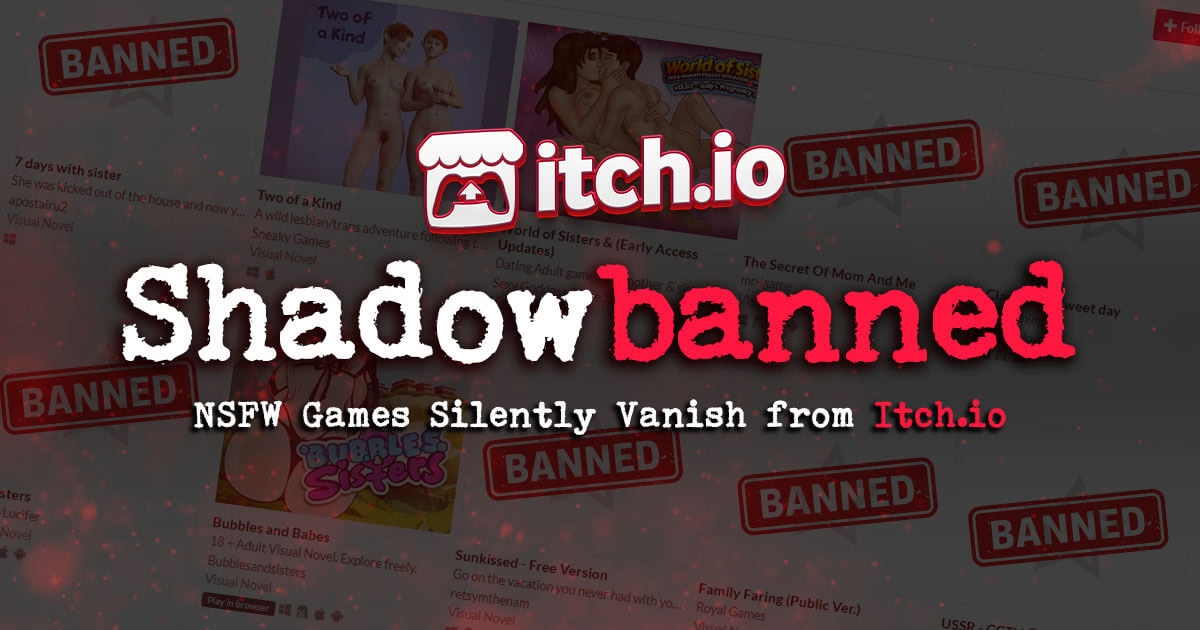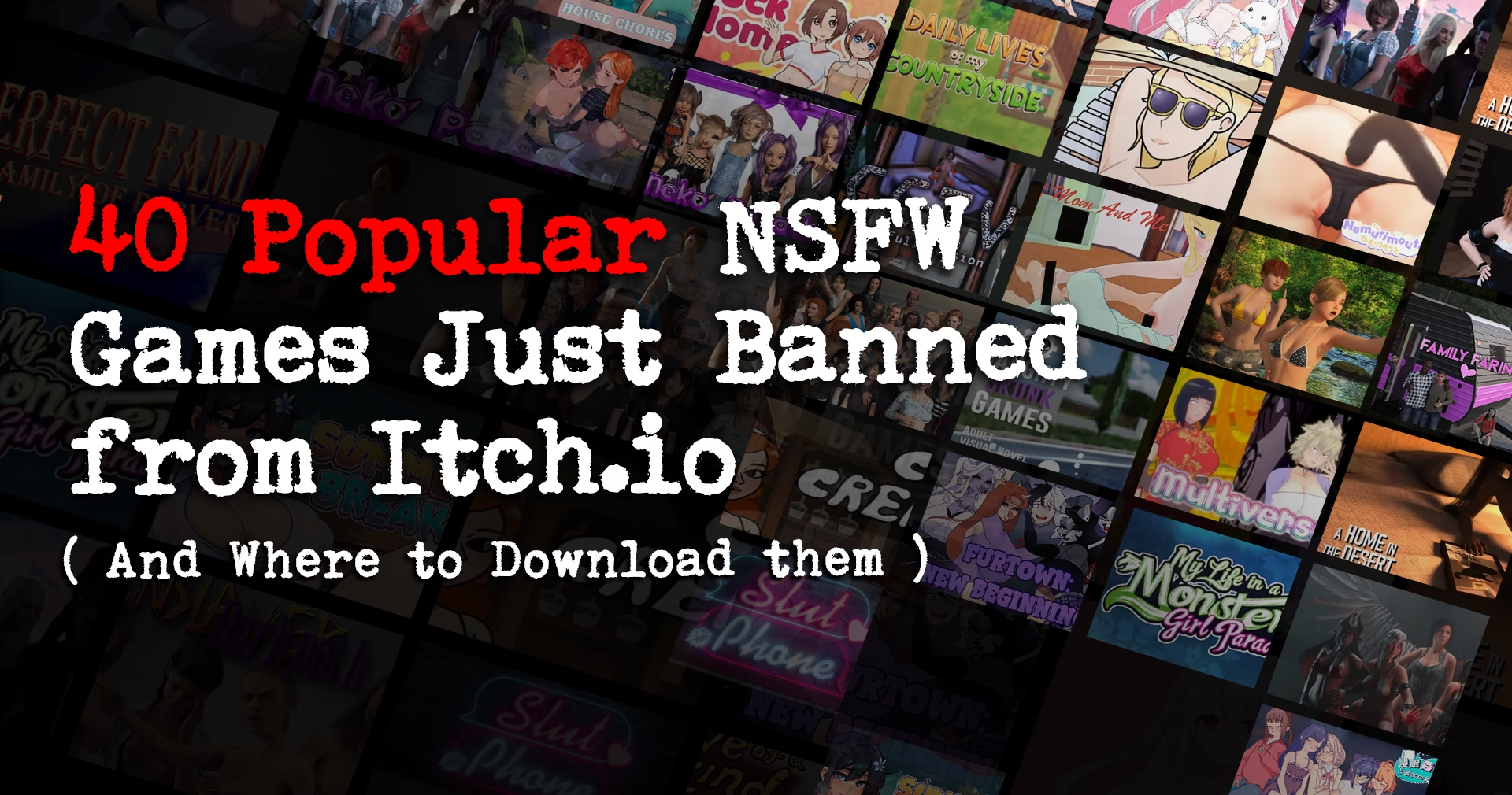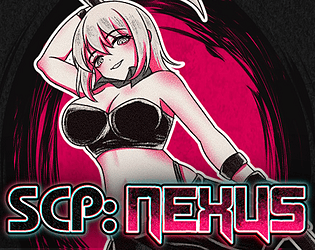Itch.io Platform Has Seemingly Shadowbanned NSFW/Adult Games

In a move that has alarmed many indie creators and adult game developers, Itch.io has seemingly begun shadowbanning NSFW and adult games from its platform. This sudden shift has sparked discussions around censorship, payment processor influence, and the broader implications for adult content in indie spaces.
What Happened?
Earlier today, developers and users noticed that numerous adult-themed titles on Itch.io were no longer appearing in search results or browse sections—a classic sign of shadowbanning. While not officially announced as a platform-wide purge, the deindexing of these titles strongly suggests that something is brewing behind the scenes.

Official Itch.io Response
In an official update (source), Itch.io acknowledged the situation:
“Recently, we came under scrutiny from our payment processors regarding the nature of some content hosted on itch.io.”
The tipping point appears to be a controversial game titled No Mercy, which was removed from the site in April. The game drew the attention of Collective Shout, an Australian advocacy group focused on anti-pornography and anti-exploitation campaigns. The group launched a campaign targeting both Itch.io and Steam, directing complaints to their payment processors.
As a result, Itch.io is now conducting a comprehensive audit:
“Pages will remain deindexed as we complete our review.”
“Part of this review will see some pages being permanently removed from itch.io.”
This means some games may not return—even after the audit is done.

The Payment Processor Pressure: Behind the Curtain
Collective Shout published an open letter to major payment processors, including Visa, Mastercard, and PayPal, urging them to reconsider partnerships with platforms like Itch.io and Steam due to “extreme pornographic material” involving simulated abuse or exploitation. The letter framed these games as violating the processors’ acceptable use policies, despite the content being fictional and often consensual in context. The open letter has drawn criticism for conflating fiction with real-world harm, as well as for pushing payment platforms to dictate content moderation decisions—without public debate, community input, or platform policy transparency.

Not Just Itch.io — Steam Was Hit First
Itch.io’s audit comes on the heels of a similar controversy involving Steam, which also faced pressure from Collective Shout. According to a detailed report by TheGamer, Steam has recently removed dozens of adult games following complaints from the same activist group. The games in question often featured queer, fetish, or visual novel content.
The report highlights that Collective Shout, a conservative feminist and anti-porn group, has directly targeted Steam’s payment processing partners to push for game removals. In response, Steam delisted or restricted over 80 titles, many without clear communication to developers.
Critics argue this sets a dangerous precedent—where platforms, rather than enforcing their own policies transparently, are pressured by external moral campaigns that do not reflect the values or needs of their diverse creator communities.

Journalists Report Retaliation and Resignations
According to NotebookCheck, some journalists investigating these censorship campaigns resigned or faced backlash, allegedly due to the sensitive nature of the reporting. The pressure applied to both platforms and media outlets suggests a broader, chilling effect: creators, consumers, and now even reporters are feeling the consequences.

Creators Speak Out
Artists and developers like Dieselbrain have taken to social media to express frustration:
“Imagine being a gay or trans creator, making games for your own community, only for a group of outsiders to label you ‘deviant’ and get your work banned.”
This sentiment reflects a growing fear that queer and kink creators are being disproportionately affected by opaque censorship mechanisms, often driven by moral panic rather than actual harm.
Ren’Py Creator
The growing concern isn’t just among indie developers—it’s being echoed by leaders in the visual novel community. Tom Rothamel, creator of the Ren’Py engine (widely used for adult and visual novel games), shared his thoughts on the situation via Twitter/X:
“While Itch has a right to moderate their platform, I hope they do this review in a transparent and careful way that includes adult creators and players. Otherwise, we lose a huge amount of culture, creativity, and fun.”

In a follow-up, he added:
“I worry that this may be part of a pattern of institutions working to eliminate adult content by making it impossible to distribute or monetize it. This isn’t a problem just for adult content—this is censorship by unaccountable actors, and a problem for everyone.”
These statements highlight growing fears that the crackdown is not just about moderation—but about a broader systemic erasure of adult creative expression, especially from queer, marginalized, and kink-positive voices.
What This Means for Indie Developers
These recent actions signal an increasing trend: third-party payment processors are quietly reshaping what’s allowed on creative platforms. While companies like Itch.io and Steam technically remain in control of their moderation policies, the reality is more complicated when payment access is on the line.Itch.io, once considered a haven for unconventional, adult, and experimental content, is now under pressure to conform to external guidelines—even if that means quietly deplatforming its most vulnerable creators.
Final Thoughts
Whether you see this as a necessary cleanup or a targeted censorship campaign, one thing is clear: the lines between financial control and creative freedom are blurring. For adult game developers, and the communities they serve, the future remains uncertain.
We’ll continue monitoring this story as it unfolds.








